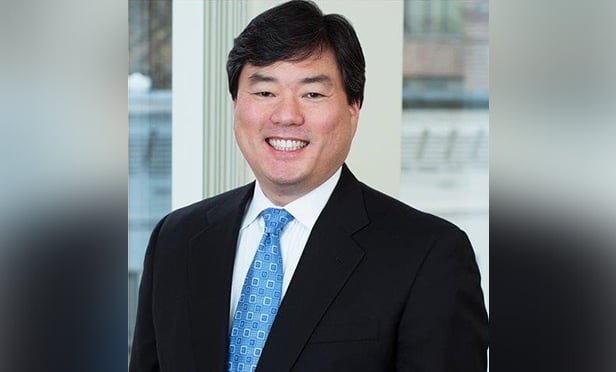
 Richard Choi, a partner in the law firm Carlton Fields in Washington.
Richard Choi, a partner in the law firm Carlton Fields in Washington.
Richard Choi's favorite winter pastimes are hitting the slopes and shooting sporting clays, but he was too busy in mid-January helping the Insured Retirement Institute craft a comment letter to the Securities and Exchange Commission on the agency's variable annuity summary prospectus proposal to relish in such pleasures – as of yet.
A partner in the law firm Carlton Fields in Washington, Choi's been spending his days advocating for clients before the SEC as well as talking to CEOs and other executives about the regulatory challenges around the bend – namely fiduciary-type standards from the Labor Department and SEC – and penning comments to the securities regulator on a long-awaited VA summary prospectus.
Choi and IRI hope that the VA summary prospectus will be adopted later this year.
The layers of supervisory work, cooperation and input by multiple supervisors across the federal and state system for potential new best-practices standards for the sale of annuities and other investment practices after the collapse of the now-defunct Obama-era fiduciary rule "will be a heavy lift," Choi admits.
Practicing law for more than 30 years, with degrees from University of Chicago and University of Virginia, Choi focuses his practice on regulatory, compliance and transactional matters involving registered and unregistered insurance products, mutual funds, investment advisors and broker-dealers.
When not busy helping clients, Choi also serves on the advisory board of the Smithsonian Libraries and plays with his granddaughter, Hailey, age 5.
Choi talked to ThinkAdvisor recently about the upcoming regulatory landscape for advisors and broker-dealers in the new year. The conversation has been edited for clarity and length.
ThinkAdvisor: The SEC proposed last October a variable annuity summary prospectus. Dalia Blass, director of the SEC's Investment Management Division, said in November that she wanted to "future-proof" the rule." What will you be advising clients on this proposal as they take to the whiteboard? When do you expect a final rule?
Choi: Dalia and the SEC staff deserve a lot of credit for getting the summary prospectus proposal through the SEC. I worked on the original rulemaking petition submitted by the Insured Retirement Institute over 10 years ago, and the industry and the SEC staff have been working closely on that initiative ever since.



